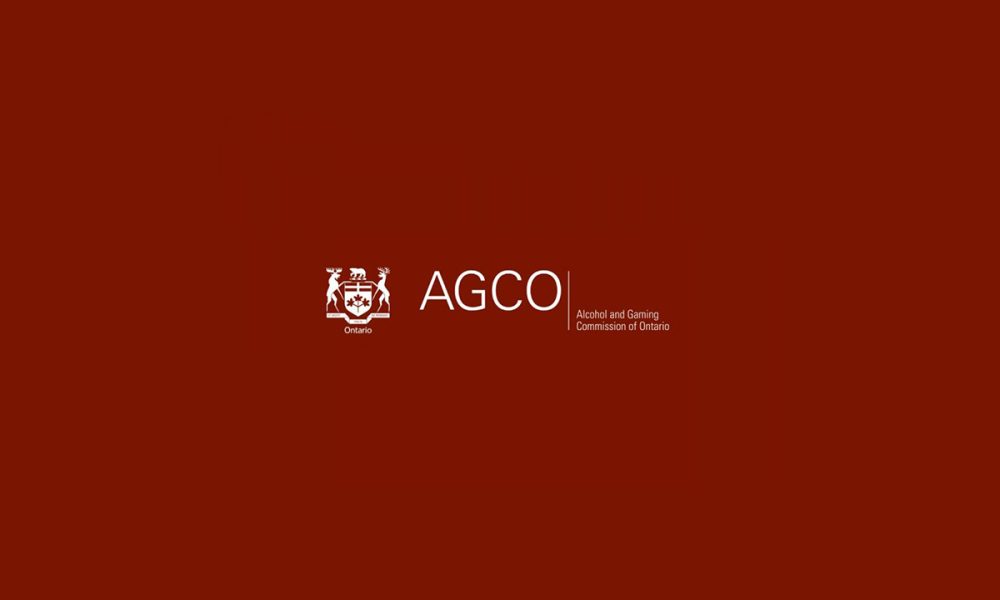

Canada
PlayMichigan.com: Sports betting drops for second consecutive month
Michigan’s sports betting volume slumped for the second consecutive month in May. Meanwhile, online casinos remained achingly close to the state’s first $100 million revenue month — another impressive total for what has already become one of the three largest online casino markets in the U.S. in less than five months, according to PlayMichigan, which analyzes and researches the state’s regulated online gaming and sports betting market.
“Online casinos don’t face the same dramatic seasonal variances as sports betting does, so they act as a steadying force for the industry,” said Jessica Welman, analyst for PlayMichigan.com. “On the other hand, sportsbooks have been hit by the seasonality of sports betting and struggling local teams. It appears they will have to wait until the end of summer before substantial growth can be expected again.”
Michigan online sportsbooks took in $237.6 million in wagers through the 31 days of May, down 4.9% from $249.9 million over the 30 days of April, according to official data released Tuesday by the Michigan Gaming Control Board. Combined with $20.2 million in retail handle, which was announced last week, Michigan’s online and retail sportsbooks took in $257.7 million in bets. That total is down 6.0% from $274.2 million in bets in April.
Gross operator revenue from online betting fell 4.5% to $19.5 million in May from $20.4 million in April. That produced $9.9 million in taxable revenue, down from $10.9 million, yielding $993,784 in state taxes.
With its 28.5% drop in wagering, Michigan’s April handle represented the steepest month-over-month decline among the 10 largest sports betting markets in the U.S. May’s results so far lags behind other states that have already reported April data, too. Iowa’s wagering was down 2.9% in May, for example, while Indiana’s handle rose 7.6%, to $254.4 million.
A slowdown in sports betting from April until the kickoff of football season is inevitable in nearly every state. But Michigan’s decline has been more pronounced because as the initial enthusiasm that came from the launch of online betting began to settle, the sports schedule also waned. Even more, all of Detroit’s professional teams that were in action in April and May — the Pistons, Red Wings, and Tigers — struggled mightily.
“A lack of success from Detroit teams naturally saps interest, and Michigan is facing too many short-term factors to overcome completely,” said Matt Schoch, analyst for PlayMichigan.com. “Despite the declines in betting volume, there aren’t any systemic issues. Even if the Lions’ prospects are equally dim, substantial growth will almost certainly return with the beginning of football season.”
FanDuel/MotorCity Casino led all online sportsbooks with $71.2 million in wagering, down from $74.2 million in April, and $9.3 million in gross sports betting receipts, up from $7 million. That total yielded $7.4 million in taxable revenue.
DraftKings/Bay Mills Indian Community followed with $66.7 million in wagers, up from $61.5 million in April. Gross gaming revenue fell to $1.9 million from $3.4 million in April. BetMGM/MGM Grand Detroit remained third with $51.6 million in bets, down from $54.9 million in April while producing $5.3 million in gross receipts and $2.7 million in taxable revenue.
The online market leaders were followed by:
- Barstool/Greektown Casino ($18.2 million handle, down from $24.8 million in March; $1.1 million gross revenue, down from $2.4 million)
- PointsBet/Lac Vieux Desert Band of Lake Superior Chippewa Indians ($11.4 million handle, down from $14.1 million; $1 million GGR, up from $807,988)
- William Hill/Grand Traverse Bay Band of Ottawa and Chippewa Indians ($6.2 million handle, down from $7 million; $217,050 GGR, down from $346,865)
- FOX Bet/Little Traverse Bay Bands of Odawa Indians ($5.1 million handle, down from $5.5 million; $338,049 GGR, down from $371,271)
- BetRivers/Little River Band of the Ottawa Indians ($2.8 million handle, up slightly from April; $76,004 GGR, down from $172,146)
- Twin Spires/Hannahville Indian Community ($1.5 million handle, down from $1.9 million; $95,645 GGR, down from $163,524)
- Wynn/Sault Ste. Marie Tribe of Chippewa Indians ($1.4 million handle, down from $1.9 million; $168,874 GGR, down from $177,154)
- Golden Nugget/Keweenaw Bay Indian Community ($923,269 handle, down from $874,114; $10,750 GGR, up from -$2,623)
- Four Winds Sportsbook/Pokagon Band of Potawatomi Indians ($545,937 handle, up from $345,719; -$20,000 GGR, down from $7,908)
“The next few months should help bring innovation from sportsbooks, as each operator experiments with ways to spur interest during the slow season,” Schoch said. “Those developments could be unique promotions built around the upcoming Olympics, or interesting NBA playoff or baseball bets. Regardless, innovation in a competitive market is ultimately good for the entire industry.”
Online casinos and poker
Revenue for Michigan’s online casinos and poker rooms hit $94.9 million in May, essentially even with April but still just below the record $95.1 million reached in March. May’s win breaks down to $3.1 million per day of the 31 days of the month, down slightly from $3.2 million per day over the 30 days of April.
The win produced adjusted gross receipts of $89.1 million, up from $88.9 million in April. That total yielded $18.1 million in state taxes and $7.1 million in local taxes.
Michigan is still trying to join New Jersey and Pennsylvania as the only states to reach $100 million in revenue over a single month. The growth has stalled in recent months, but online casinos overall have grown far more quickly than any other U.S. online casino market. Since January, online casinos and poker have generated $393.9 million in revenue and $99.7 million in state and local taxes. By comparison, online and retail sportsbooks have generated $123.5 million in revenue and just $5.2 million in state and local taxes.
“Online casinos have become a powerhouse of revenue generation,” Welman said. “Revenue has remained high, even as retail casinos around Detroit have become more accessible. Looking ahead, the popularity of these games should remain — and likely expand — over the next few months, even as retail casinos’ operations continue to steady.”
Other highlights from May:
- BetMGM/MGM Grand Detroit led with $36.1 million in gross receipts, yielding $10.6 million in state and local taxes.
- FanDuel/Motor City was second with $16.3 million in GGR, producing $4.3 million in state and local taxes.
For more information and analysis on regulated sports betting in Michigan, visit PlayMichigan.com/news.
About the PlayUSA.com Network:
The PlayUSA.com Network is a leading source for news, analysis, and research related to the market for regulated online gaming in the United States. With a presence in over a dozen states, PlayUSA.com and its state-focused branches (including PlayMichigan.com, PlayNJ.com, and PlayPennsylvania.com) produce daily original reporting, publish in-depth research, and offer player advocacy tools related to the advancement of safe, licensed, and legal online gaming options for consumers. Based in Las Vegas, the PlayUSA Network is independently owned and operated, with no affiliations to any casino — commercial, tribal, online, or otherwise.
British Columbia Lottery Corporation
SCCG Management Signs Contract with British Columbia Lottery Corporation

SCCG Management has signed a contract with the British Columbia Lottery Corporation (BCLC), the B.C. Crown corporation which conducts and manages commercial gambling in the province, including lotteries, casinos, and online gaming. This partnership aims to undertake a comprehensive assessment and strategic enhancement of BCLC’s diverse operations.
The work between SCCG and BCLC will involve a thorough review of technological infrastructures, strategic market positioning, and the integration of various gaming modalities. SCCG’s extensive expertise will be pivotal in harmonizing BCLC’s online and physical gaming experiences.
Stephen Crystal, Founder and CEO of SCCG Management, said: “Our collaboration with BCLC represents a remarkable opportunity to push the boundaries of innovation within the gaming industry. We are committed to deploying our resources and expertise to enhance BCLC’s operational efficiencies and customer engagement strategies. It’s an honor to partner with an organization that has a robust impact on the community through its support of public initiatives.”
AGCO
AGCO Requires Ontario Gaming Operators to Stop Offering WBA Bets Due to Integrity Concerns

The Alcohol and Gaming Commission of Ontario (AGCO) has mandated all Ontario-registered sportsbook operators to halt offering and accepting wagers on World Boxing Association (WBA) events immediately. This measure is being taken to protect the Ontario betting public following concerns that WBA-sanctioned boxing matches are not adequately being safeguarded against match-fixing and insider betting.
Since December 2023, the AGCO has been conducting a comprehensive review of suspicious wagering activity on a WBA-sanctioned title fight between Yoenis Tellez and Livan Navarro that was held in Orlando, Florida. Suspicious betting patterns on the bout lasting over 5.5 rounds were reported to the AGCO by two registered independent integrity monitors and detected in Ontario by a registered igaming operator. Media reports also alleged that Tellez’s Manager placed $110,000 on the match lasting longer than 5.5 rounds at a Florida casino. The bout ended with Tellez knocking out Navarro in the 10th round.
Following an intensive review that included outreach to the WBA, Ontario-registered gaming operators, independent integrity monitors, and regulators in other jurisdictions, the AGCO has concluded that bets related to WBA events do not currently meet the Registrar’s Standards for Internet Gaming.
The AGCO requires all Ontario-registered gaming operators to ensure the sport betting products they offer are on events that are effectively supervised by a sport governing body. At a minimum, the sport governing body must have and enforce codes of conduct that prohibit betting by insiders.
Registered gaming operators were unable to demonstrate to the AGCO that the WBA prohibits betting from insiders, which could include an athlete’s coaches, managers, handlers, athletic trainers, medical professionals, or others with access to non-public information. Further, registered gaming operators were unable to demonstrate that the WBA took any action to investigate or enforce the allegations of potential match-fixing and insider wagering.
The AGCO has indicated to registered operators that in order for WBA betting products to be reinstated in Ontario, operators must demonstrate that the WBA effectively supervises its events, thus bringing them into compliance with the Registrar’s Standards. In December 2022, the AGCO required gaming operators to stop offering bets on UFC events for similar issues related to insider betting safeguards. Within a month, UFC amended its policies and implemented new protocols that allowed the AGCO to reinstate betting on UFC events in the province.
“Ontarians who wish to bet on sporting events need to be confident that those events are fairly run, and that clear integrity safeguards are in place and enforced by an effective sport governing body. Knowing the popularity of boxing in Ontario, we look forward to reinstating betting on WBA events once appropriate safeguards against possible match-fixing and insider betting have been confirmed,” Dr. Karin Schnarr, Registrar and CEO of AGCO, said.
Andrew Cochrane Chief Business Officer of GiG
GiG increases Ontario market presence, powering the launch of Casino Time

Gaming Innovation Group Inc. (GiG), has announced the launch of Casino Time, powered by its award winning iGaming platform and pioneering real-time rules engine LogicX, with revolutionary sportsbook, SportX soon to follow, to further extend its footprint in the regulated Canadian province of Ontario.
The launch of Casino Time carries extra significance, marking only the second time that on-demand, regulated online Bingo has been made available in Ontario. The new Bingo product vertical, launched alongside a strong Casino offering, will be boosted by GiG’s new sportsbook, SportX, as part of a planned release later this year.
GiG has focused its solutions on driving exponential growth in revenue for operators with its highly scalable iGaming platform, offering localised third party content and leading suppliers for the Ontarian market. GiGs peerless gamification layer creates an optimised and immersive casino experience tailored to regional preferences, swelling client retention and player engagement.
Canadian owned and operated, Casino Time is a joint venture amongst leading retail operators in Ontario’s Charitable Gaming sector, delivering Bingo, Slots and Live Dealer Casino Games. Promising a personalised service and community experience, Casino Time is continuing its long-standing partnership with local charities, introducing its joint fundraising model into the iGaming space for the first time.
Now coming towards the end of its second year of licensed operations, Ontario has emerged as one of the largest iGaming markets in North America, second only to New Jersey according to data supplied by Vixio. The first and as yet only Canadian province to launch a regulated market, Ontario boasts more than 1.6 million active player accounts spread over 40 plus operators, generating €1.3 billion in Gross Gaming Revenue (GGR) in its first year of trading, with this data supplied by iGaming Ontario.
Andrew Cochrane, Chief Business Officer of GiG, said: “GiG continues to set the pace with a strong cadence of brand launches in 2024, and I’m pleased that when operators are seeking platform solutions in regulated markets, GiG is leading the pack. Our partnership with Casino Time, will help deliver something new and exciting to the Ontarian market, and further helps to demonstrate the flexibility of our solutions, adapting to match the regional aspirations of our partners to deliver growth.”
D’Arcy Stuart, CEO of Casino Time, said: “We are thrilled to partner with GiG as the core technology provider of our iGaming platform. Their powerful suite of player engagement tools, as well as diverse content and regulatory integrations, underpin our ability to serve and delight our player community. Our hybrid online and offline customer network, as well as unique bingo offerings, will drive exciting opportunities as the platform and the marketplace continues to grow.”
-

 gaming2 years ago
gaming2 years agoODIN by 4Players: Immersive, state-of-the-art in-game audio launches into the next generation of gaming
-
EEG iGaming Directory7 years ago
iSoftBet continues to grow with new release Forest Mania
-
News6 years ago
Softbroke collaborates with Asia Live Tech for the expansion of the service line in the igaming market
-
News5 years ago
Super Bowl LIII: NFL Fans Can Bet on the #1 Sportsbook Review Site Betting-Super-Bowl.com, Providing Free Unbiased and Trusted News, Picks and Predictions
-
iGaming Industry6 years ago
Rick Meitzler appointed to the Indian Gaming Magazine Advisory Board for 2018
-
News5 years ago
REVEALED: Top eSports players set to earn $3.2 million in 2019
-
iGaming Industry6 years ago
French Senator raises Loot Boxes to France’s Gambling Regulator
-
News6 years ago
Exclusive Interview with Miklos Handa (Founder of the email marketing solutions, “MailMike.net”), speaker at Vienna International Gaming Expo 2018












